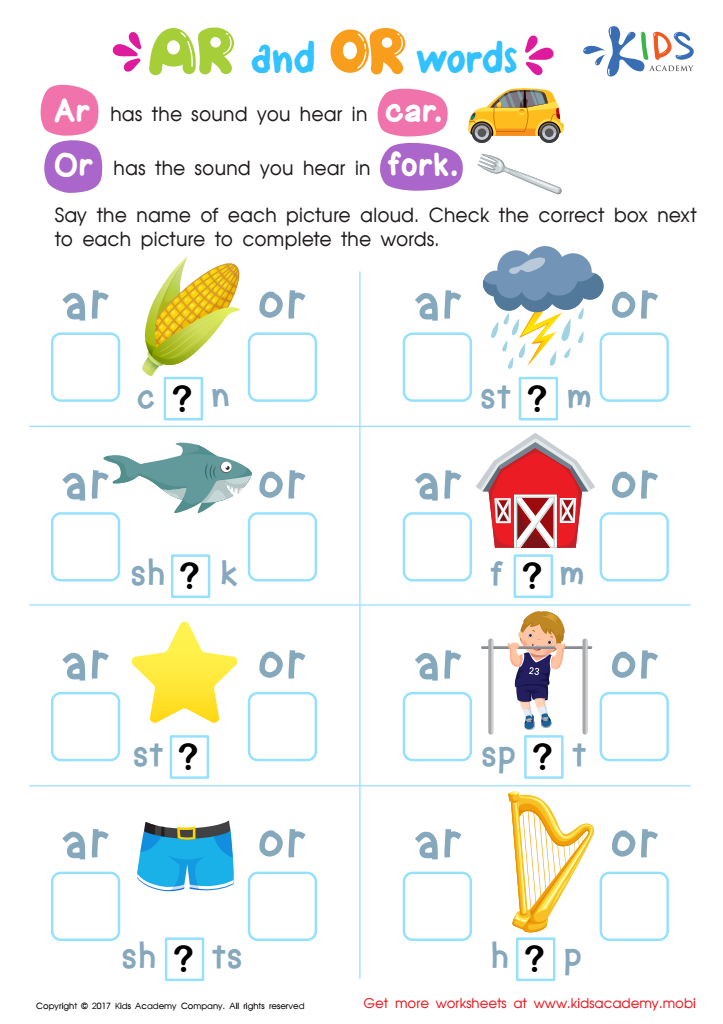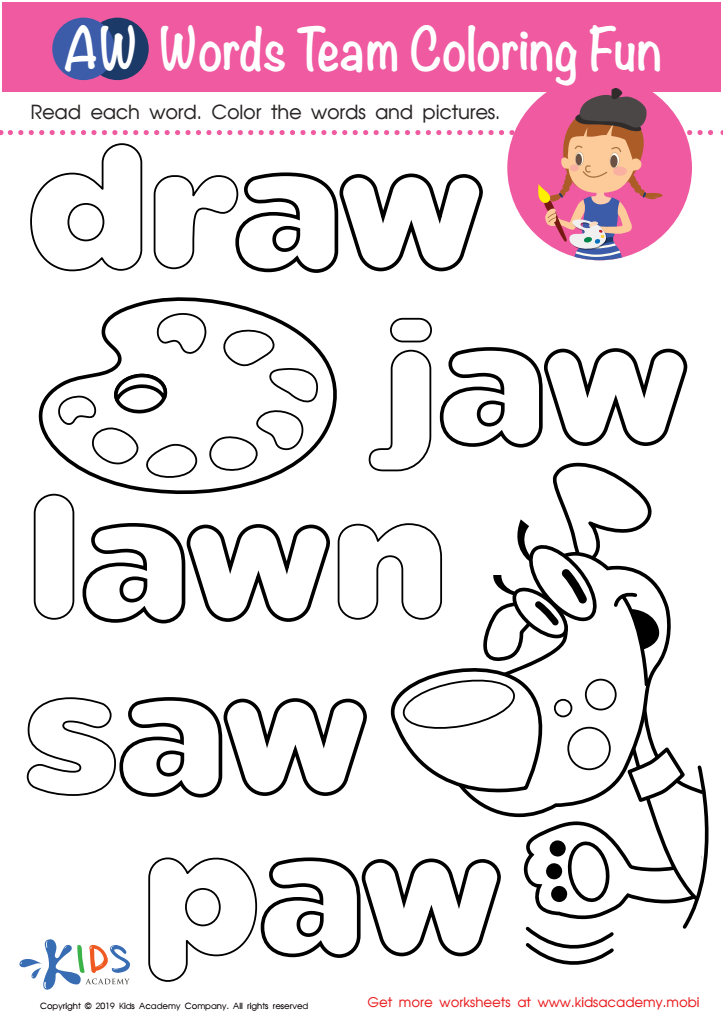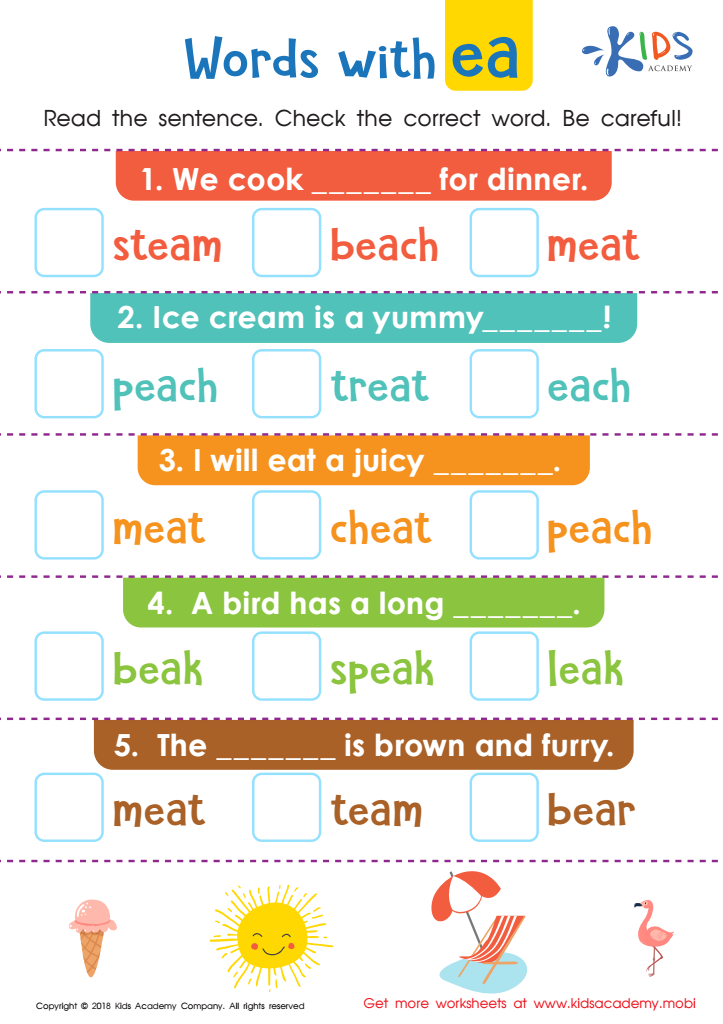Spelling Skills Normal Two Letter Phonics Worksheets for Ages 3-8
3 filtered results
-
From - To
Develop essential spelling skills with our engaging two-letter phonics worksheets, designed specifically for children ages 3-8. Our expertly crafted activities provide a strong foundation in phonetic principles by focusing on common consonant and vowel blends. These worksheets are perfect for early learners, helping them identify letter sounds, improve word formation, and enhance reading readiness. Enriched with vibrant illustrations and interactive tasks, the materials captivate young minds, making learning an enjoyable experience. Encourage your child’s spelling and phonetic skills today with our trusted and educational resources, tailored to foster literacy development in a fun and effective way.


Ar and Or Words Phonics Worksheet


AW Words Team Coloring Fun Worksheet


Words with ea Worksheet
Spelling skills, including mastery of normal two-letter phonics, are essential building blocks for literacy in children aged 3-8. During these formative years, children rapidly develop their cognitive and language abilities, creating an optimal period to instill foundational skills that will support their academic growth.
Firstly, understanding two-letter phonics helps children decode words, an essential skill for reading fluently. This ability to break down and recognize basic phonetic patterns, like "at," "in," or "up," enables children to tackle more complex words with confidence as they progress. These early successes at reading boost self-esteem and foster a positive attitude towards learning.
Secondly, good spelling skills enhance written communication. By learning and practicing two-letter phonics, children begin to understand how sounds correlate with letters, improving their spelling accuracy. Accurate spelling is crucial for clear communication, enabling children to express their thoughts and ideas effectively.
Moreover, strengthening phonics and spelling skills can aid in overall language development, including vocabulary acquisition and improved listening comprehension. It encourages analytical skills as children differentiate sounds and letter patterns.
Therefore, parents and teachers should prioritize spelling skills and phonics education for young children. It not only lays the groundwork for academic success but also supports critical linguistic and cognitive development necessary for lifelong learning.
 Assign to My Students
Assign to My Students














